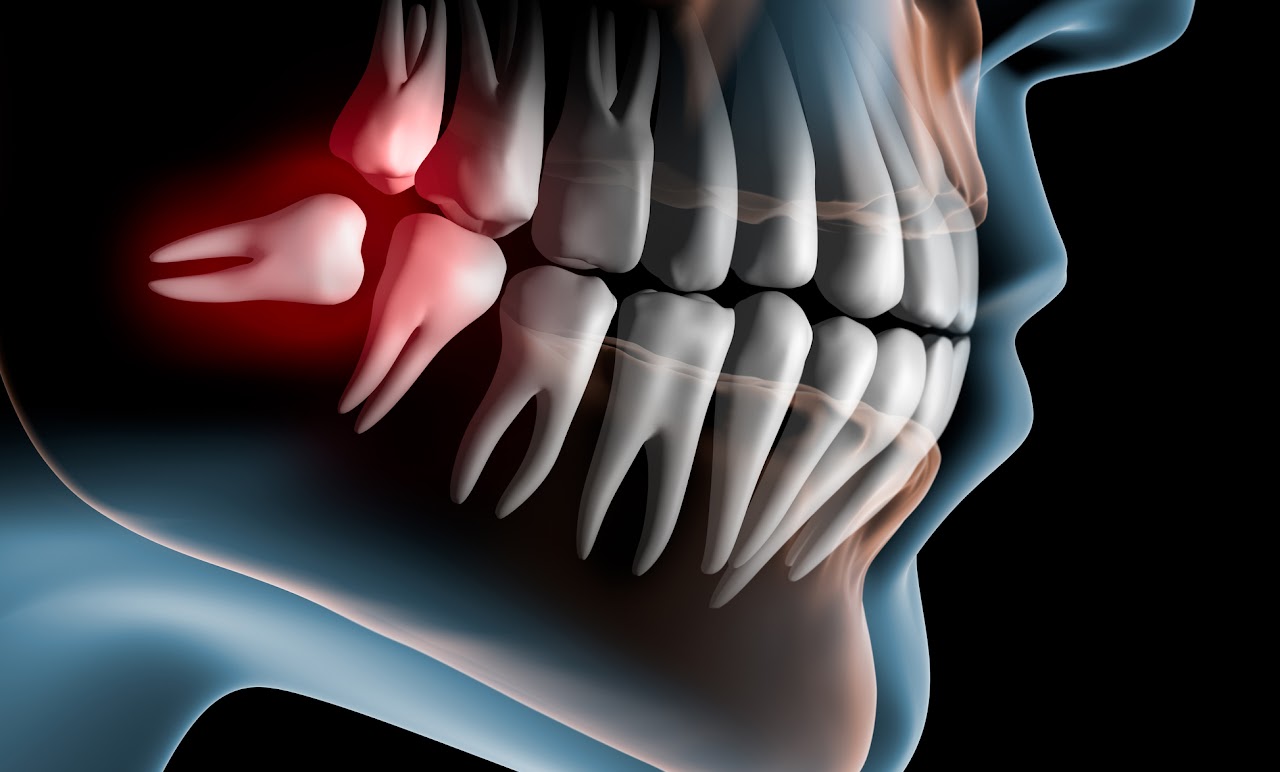Wisdom Tooth (Third Molar) Surgery
in Naranpura, Ahmedabad
Pain-Free Extractions & Expert Care at Sanghvi Face & Dental Hospital
Are you experiencing jaw pain, swelling, or difficulty opening your mouth? It might be your third molars. At Sanghvi Face & Dental Hospital, led by Dr. Darshan Sanghvi (MDS), we specialize in the surgical management of impacted wisdom teeth using minimally invasive techniques.

What is an Impacted Wisdom Tooth?
Third molars, commonly known as wisdom teeth, are the last set of teeth to emerge. Often, there isn’t enough space in the jaw, causing the tooth to become “impacted” (stuck). This can lead to:
- Pericoronitis: Infection of the gum tissue around the tooth.
- Cysts: Fluid-filled sacs that can damage the jawbone.
- Damage to Adjacent Teeth: Crowding or decay of the second molars.
- Severe Facial Pain: Radiating to the ear and neck.
When is Wisdom Tooth Extraction Needed?
Impacted teeth causing jaw pain or swelling
Difficulty in opening the mouth or chewing due to tooth position
Recurring infections or gum issues behind second molars
When there is cyst or tumor around the third molar
Benefits of Third Molar Surgery
Relief from pain, swelling, and discomfort
Prevents future infections, tooth damage, or jaw cysts
Protects alignment of existing teeth
Quick recovery with modern surgical techniques
Helps maintain overall oral hygiene and health
Process
Consultation & X-Ray:
We assess the tooth position relative to the dental nerve.
Local Anaesthesia:
We ensure the area is completely numb.
Minimal Incision:
Dr. Darshan uses specialized instruments to remove the tooth with minimal trauma to the bone.
Sutures & Aftercare:
Dissolvable stitches are placed, and you are provided with a detailed recovery kit.
Post-operative Care
Instructions provided for pain management and fast recovery

Why Choose Dr. Darshan Sanghvi for Your Extraction?
As an Oral and Maxillofacial Surgeon, Dr. Darshan Sanghvi has specialized training beyond general dentistry to handle complex, deeply impacted teeth that require surgical precision.
- Surgical Expertise: Specialized in “painless” surgical extractions.
- Advanced Technology: Use of digital imaging to map nerve proximity.
- Sterilization: Hospital-grade sterilization protocols for zero infection risk.
- Local Convenience: Located in the heart of Naranpura, easily accessible for residents of Ahmedabad.
FAQs (Third Molar Surgery)
With modern local anaesthesia and Dr. Darshan’s surgical technique, you will feel pressure but no pain during the procedure. We also provide post-operative sedation and medications to manage any discomfort during recovery.
Most patients in our Naranpura clinic return to their normal routine within 3 to 5 days. We provide a specific diet chart (soft foods) and ice-pack instructions to speed up healing.
The cost depends on the complexity of the impaction (vertical, horizontal, or bony). During your consultation at Sanghvi Hospital, we provide a transparent breakdown of the fees.
Prevention is key. Impacted teeth often harbour bacteria that cause “silent” cavities in your healthy second molars. Removing them early prevents bone loss and future emergency surgeries.
Book Your Consultation Today
- Specialist: Dr. Darshan Sanghvi (Con. Oral and Maxillofacial Surgeon & Implantologist)
- Location: Sanghvi Face and Dental Hospital, Opp Ankur Bus Stop, Naranpura, Ahmedabad , Gujarat – 13
- Contact: 079 – 27439850, 07990550920, 9824099850
- Book Your Appointment : https://calendar.app.google/ibP7s8QtjL6toUSRA

